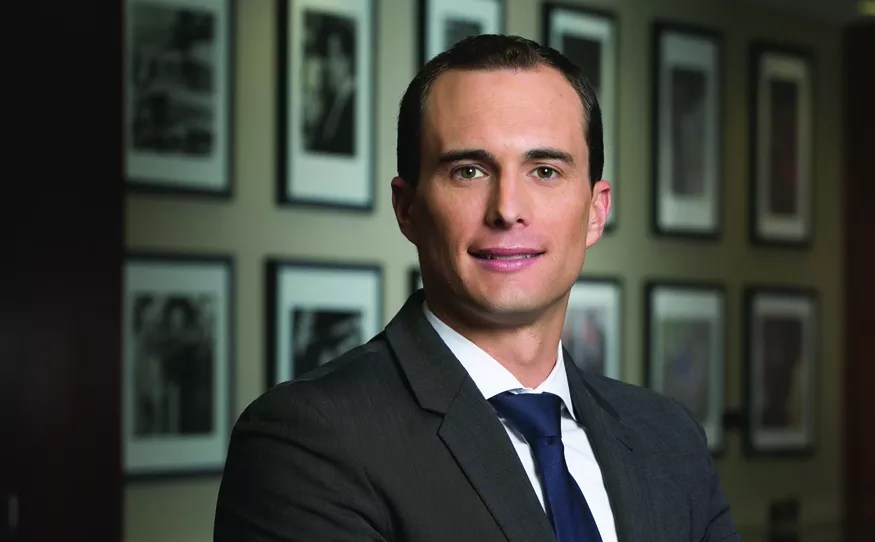
Courtesy of Brownstein Hyatt Farber Schreck

Audio By Carbonatix
When Barbara Brohl was clerking for the Colorado Supreme Court over twenty years ago, she hardly thought her legal career would lead to marijuana. But like Snoop Dogg, Whoopi Goldberg and even John Boehner, the former executive director of the Colorado Department of Revenue is now working with the weed industry.
Celebrities such as Snoop and Whoopi were natural candidates to cash in on legal cannabis, attaching their pot-friendly personas to various marijuana products.
But Boehner, a former Speaker of the House and once a vocal critic of legalization, shocked the country when he joined the board of a national cannabis company in April. When Brohl, who’d presided over the government agency responsible for regulating Colorado’s cannabis industry, made the jump to cannabis consulting in March after leaving the DOR in 2017, it created much less of a stir – but both moves show that pot is a growing landing spot for those leaving public service.
As head of the DOR both before and after Colorado voters legalized recreational cannabis in 2012, Brohl was part of a task force that had about a year to implement a framework of laws and regulations that would accommodate an industry that nearly tripled in revenue from the first sales on January 1, 2014, to 2017. But with Governor John Hickenlooper’s second term coming to a close, “I knew I’d be leaving anyway, so I thought, ‘How could I position myself in what I want to do and accomplish?'” Brohl recalls. “I learned a lot of different things during my time [with the state]. Not only about how to regulate marijuana, but also harm reduction and safe regulation.”
Now Brohl is putting that knowledge to good use at industry veteran Todd Mitchem’s Dacorum Strategies, where she’s advising cannabis clients on government affairs and community relations. “The way I look at it, it’s not much different than what I was doing before in terms of bringing everyone to the table, talking and making sure everyone comes to an understanding,” she explains. “Then, you want to try to find a win-win for everybody. We’re not as far apart – the cannabis industry and government – as people think we are.”

Barbara Brohl was in charge of enforcing legal cannabis regulations before and after Amendment 64.
Courtesy of Dacorum Strategies
She’s not the first Colorado employee to make that jump. Andrew Freedman, the state’s initial director of marijuana coordination, left that post at the start of 2017 after three years on the job in order to consult with ancillary businesses and local and state governments about cannabis policy. It didn’t take long for his replacement to follow a similar path, either.
Mark Bolton, who replaced Freedman as Hickenlooper’s cannabis czar, only lasted a little over a year in the position, leaving state government for the private sector in March. His new job? Government affairs for Brownstein Hyatt Farber Schreck, a law firm that represents companies “facing significant legal and practical challenges related to the use of cannabis, powdered alcohol, self-driving cars and other new but quickly expanding industries,” according to its website.
Bolton, who served as Hickenlooper’s senior deputy legal counsel for over a year before taking over cannabis policy, believes that sharing both his successes and failures can help other states and localities handle legalization even better than Colorado has. “I don’t know if going into consulting is a national trend or not,” he says. “But now I can go out and share my Colorado marijuana experiences – what went right, what went wrong, how to correct these issues when they arise – and really provide some of that legal strategy these places are looking for.”
Having to tackle such issues as edible impairment, stoned driving, the black and gray markets and home-growing operations has made Brohl, Bolton, Freedman and other former state employees hot commodities in the private pot sector.
While her switch doesn’t necessarily mean she’s advocating for cannabis use, Brohl says that the growing number of Americans supporting its legalization and the increasing number of states considering cannabis policy reform has forced those in government positions to reconsider their stance regarding the plant. “Frankly, responsible regulation does work. Prohibition doesn’t,” she says. “It’s really important that we start to move forward and do this in a responsible manner. Focusing on public safety, consumer protection, but also working both sides of the aisle. We want to move this forward for everybody.”